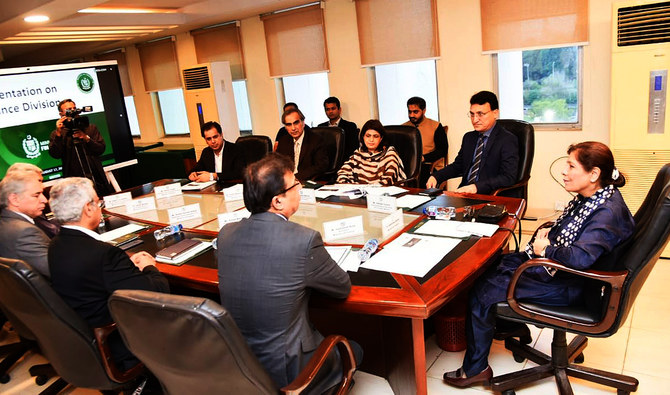ISLAMABAD: Dr. Shamshad Akhtar, former Pakistan central bank chief, on Thursday assumed charge as the caretaker finance minister of the South Asian country, the Finance Division said, following an oath-taking of the 16-member interim cabinet that would run the country until the general elections due later this year.
Akhtar, who holds a Ph.D. in Economics, served as the first woman governor of the State Bank of Pakistan from 2006 till 2009. Prior to her appointment as the SBP chief, the veteran economist served at multiple positions at the Asian Development Bank (ADB) and the World Bank. She has presented numerous papers on economics and finance at international conferences and symposia.
Her appointment comes at a time when Pakistan is facing daunting challenges on the economic front and barely averted a sovereign default in June by securing a $3 billion bailout deal with the International Monetary Fund (IMF). The IMF requires the South Asian country to continue with the reforms agreed with the lender to keep receiving the loan tranches in order to keep the economy afloat.
“Dr. Shamshad Akhtar arrived at the Finance Ministry and officially took over the responsibility of Caretaker Finance Minister of Pakistan after taking oath at the Presidency,” the Finance Division said in a statement.
“On her arrival at the Finance Ministry, she was warmly welcomed by Secretary Finance and senior officials of the Ministry. Later, Secretary Finance and his team gave a detailed briefing on the economic situation and trends of major financial economic indicators of the country.”
Upon assuming her new role, the statement said, Akhtar expressed her dedication to ensuring fiscal discipline, promoting investment and bolstering efforts to address income inequality in the country.
Meanwhile, Caretaker Prime Minister Anwaar-ul-Haq Kakar allocated portfolios to the newly-appointed federal ministers, advisers and special assistants.
Senator Sarfaraz Ahmed Bugti was given the portfolio of interior, narcotics control, overseas Pakistanis and human resource development; Jalil Abbas Jilani foreign affairs; Lt. Gen (retired) Anwar Ali Hyder defense production; Murtaza Solangi information and broadcasting; Sami Saeed planning and development; Shahid Ashraf Tarar communications, maritime affairs and railways; Ahmad Irfan Aslam law and justice, climate change, water resources; Muhammad Ali power and petroleum; Gohar Ejaz commerce, industries and production; Umar Saif information technology, telecommunication and science and technology; Nadeem Jan national health services; Khalil George human rights; Aneeq Ahmed religious affairs; Jamal Shah national heritage and culture; and Madad Ali Sindhi education and professional training, according to the PM’s office.
The prime minister also appointed Air Marshal (retired) Farhat Hussain as adviser for aviation, Ahad Khan Cheema adviser for establishment and Dr. Waqar Masood Khan as adviser for finance. Syeda Arifa Zehra, Vice Admiral (retired) Iftikhar Ahmad Rao, Wasih Shah, Mishal Hussain Malik and Muhammad Jawad Sohrab Malik were appointed special assistants.


















